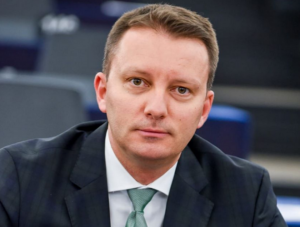 At the European level, there is an agreement to introduce a „modest” tax on disposable plastic, a first source of income to support the repayment of loans that the European Commission will contract for the formation of the re-launch fund, explained Romanian MEP Siegfried Muresan, vice president of the European People’s Party (EPP).
At the European level, there is an agreement to introduce a „modest” tax on disposable plastic, a first source of income to support the repayment of loans that the European Commission will contract for the formation of the re-launch fund, explained Romanian MEP Siegfried Muresan, vice president of the European People’s Party (EPP).
A number of other proposals are being analysed, such as:
- – tax on financial transactions, tax on large digital corporations;
- – the fee on the access of large companies to the European single market;
- – tax on carbon emissions, but there is no political agreement for them.
„We are currently discussing and agreeing to introduce a modest tax on disposable plastic that pollutes the environment and whose use we want to reduce. Some other possible sources of EU income are discussed and I list them: a tax on financial transactions, a tax on large digital corporations that pay very low taxes in the EU, a tax on the access of large companies to the European single market, a tax on carbon dioxide emissions. These are options, but there is no agreement on any of these taxes. They should be discussed in the next period. Whatever introduced as own source of income, it will not lead to additional burdens on the citizen and practically gives the EU a more solid basis for functioning in the coming years „, explained the Romanian MEP.
He detailed that the access fee for large companies in the European single market is a proposal of the European Commission that would target all companies (foreign and from EU) with a turnover of over EUR 750 million operating in several EU states.
„Currently there is no proposal or agreement. It is an idea of the European Commission to tax large companies, companies with a turnover of over EUR 750 million. In Romania, there would be only a few companies. It has not been debated in the EP either; there is no majority for it because there is no EP position, as neither is there any position between EU states either on this tax. At the moment, we have no cause for concern”, Muresan also explained.
The EPP Vice-President stated that the introduction of some European taxes is necessary for the EU to generate its own revenues from which to repay the loans that the Commission will access from the international financial markets.
“The re-launch plan will work as follows: The European Commission, which has very good creditworthiness in the financial markets, borrows money from international markets and makes this money available to countries in need, either as a loan, with extremely advantageous terms or even in the form of grants. Someone has to pay this money back, this loan back when they mature. The good news is that the EC credit allows it to borrow money for a very long time, meaning these loans will be due in the period 2026-2056, namely on a very long term, but someone has to pay them and there are three options. The first option is for the governments of the European states to pay. However, they said that these are non-reimbursable funds, money that we receive and do not have to give back, we do not want to pay the bill and they are right, I understand them. The second option would be for these amounts to be paid back from the European Union budget. But that would mean a reduction in the European budget in the future and that would not be desirable because it would mean less money for research, highways, farmers and we do not want that. Therefore, the third option is the following: to generate EU own income sources to repay this loan„, pointed out Siegfried Muresan.
The statements were made during an interview for cursdeguvernare.ro.
The European Parliament met in plenary on Thursday to adopt a resolution on the multiannual budget proposal adopted by European leaders following the four-day and four-night marathon summit ended on Tuesday morning.
The European Council proposed a budget of EUR 1,074.3 billion and a re-launch fund worth EUR 750 billion, of which 390 in grants and 360 in loans.
The proposal is to be negotiated with the European Parliament, dissatisfied with the cut in allocations for innovation and research, education and health. The budget for the next EU financial year is expected to be adopted by the EP in October, according to MEP Siegfried Muresan.








